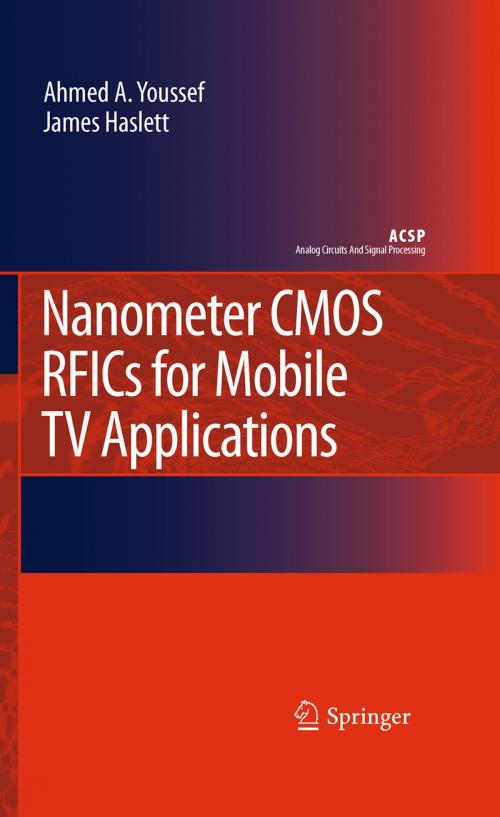Nanometer CMOS RFICs for Mobile TV Applications
Nonfiction, Science & Nature, Science, Physics, Spectrum Analysis, Technology, Microwaves| Author: | Ahmed A. Youssef, James Haslett | ISBN: | 9789048186044 |
| Publisher: | Springer Netherlands | Publication: | June 17, 2010 |
| Imprint: | Springer | Language: | English |
| Author: | Ahmed A. Youssef, James Haslett |
| ISBN: | 9789048186044 |
| Publisher: | Springer Netherlands |
| Publication: | June 17, 2010 |
| Imprint: | Springer |
| Language: | English |
Nanometer CMOS RFICs for Mobile TV Applications focuses on how to break the trade-off between power consumption and performance (linearity and noise figure) by optimizing the mobile TV front-end dynamic range in three hierarchical levels: the intrinsic MOSFET level, the circuit level, and the architectural level. It begins by discussing the fundamental concepts of MOSFET dynamic range, including nonlinearity and noise. It then moves to the circuit level introducing the challenges associated with designing wide-dynamic range, variable-gain, broadband low-noise amplifiers (LNAs). The book gives a detailed analysis of a new noise-canceling technique that helps CMOS LNAs achieve a sub - 2 dB wideband noise figure. Lastly, the book deals with the front-end dynamic range optimization process from the systems perspective by introducing the active and passive automatic gain control (AGC) mechanism.
Nanometer CMOS RFICs for Mobile TV Applications focuses on how to break the trade-off between power consumption and performance (linearity and noise figure) by optimizing the mobile TV front-end dynamic range in three hierarchical levels: the intrinsic MOSFET level, the circuit level, and the architectural level. It begins by discussing the fundamental concepts of MOSFET dynamic range, including nonlinearity and noise. It then moves to the circuit level introducing the challenges associated with designing wide-dynamic range, variable-gain, broadband low-noise amplifiers (LNAs). The book gives a detailed analysis of a new noise-canceling technique that helps CMOS LNAs achieve a sub - 2 dB wideband noise figure. Lastly, the book deals with the front-end dynamic range optimization process from the systems perspective by introducing the active and passive automatic gain control (AGC) mechanism.















